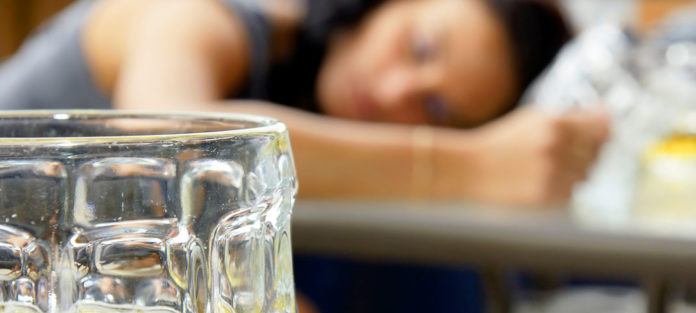
—Jayden*, Portland State University, Oregon
Yes, in ways both large and small. Are there students who drink from time to time and still manage to get good value out of their investment in higher education? Of course. In fact, most students would fit this description. But alcohol can still impair your learning experience. Here are several ways that this can happen:
Time lost to intoxication, hangovers, and/or injuries
If you’re drinking, you aren’t in a state to concentrate or remember, meaning you aren’t learning. For many college students, drinking is part of blowing off steam and relaxing after a hard few hours of academic work. In moderation, this may not present any problems. You just have to weigh the risks and be conscientious in your decision-making. It’s certainly the case that drinking to the point of being sick or having to go to the hospital, or getting in fights or injured, will likely soak up much more time than you’ve budgeted. If you have a big paper due Monday, perhaps it would make sense to take a weekend off from drinking so you have plenty of time to complete your work at a high-quality level. I often challenge students to take two to three weeks off from drinking just to prove to themselves that they can, and to see what it’s like.
Reduced sleep quality and impaired memory formation
Learning has several components. You have to be concentrating when exposed to ideas, in order to form short-term memories. While you sleep, those short-term memories are consolidated into long-term memories. Research has shown a linear relationship between hours of sleep and GPA—in other words, the more you sleep, the better you do academically.
Not sleeping enough, or getting poor-quality sleep, impedes long-term memory formation and thus the learning process. Drinking often affects decision-making, leading you to stay up later than you’d planned, and the sleep that you get when intoxicated is relatively poor quality (though it’s healthier than engaging in other activities while intoxicated; e.g., driving).
Reduced control of emotions (e.g., higher risk of depression)
There are many reasons not to drink on a particular night. Maybe you’re sick or taking medication. Maybe you have a big test the next day, or want to do well at tryout. Maybe you just don’t feel like it. At the top of the list is depression and anxiety. If you are unhappy, don’t drink. Very few things in this world are 100 percent true, but this is one of them: Drinking will worsen your experience of depression. There are much better medicines than alcohol. Ask for help at your student health center or counseling center.
Relationship complications causing upset and distraction from learning
Drinking amplifies most emotions. This can lead to euphoria, arousal, the belief that you’re an amazing dancer, and so on. Drinking can also lead to drama, and sometimes physical violence. It’s your life, of course. Personally, I find my life complicated enough without alcohol ramping things up.
Getting in trouble
Getting in trouble for underage possession, intoxication, vandalism, or anything else does not provide any short-term benefit to your educational experience.
Addiction
For some students, the stakes are much higher than getting a B instead of the A- you were capable of. About 10–15 percent of people are at particularly high risk for addiction. Their brains are wired in such a way that they struggle to control their relationship with alcohol and/or other substances. Unless they get help, and that help is effective, they are at high risk for suffering serious consequences, such as damaged relationships, financial difficulties, and the inability to complete their schooling on schedule. Sometimes it takes a serious consequence, like failing out of school, to help them come to terms with their condition. But ideally the problem would be identified and rectified before the consequences became profound.
(*Name changed)



























